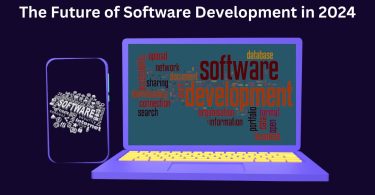The world knows this language for its longevity and the fact that it is still relevant in the field. PHP has garnered widespread acclaim due to the consistent updates it has received since its inception.
The characteristics of being simple, effective, and reliable have made PHP remain the number one of server-side scripting languages. The PHP dominance is not only due to the creation of feature-rich PHP frameworks which greatly improved the effectiveness of the PHP-based web development process.
Fundamentals of PHP Framework:
In the circumstance of software development, frameworks is a pre-coded set of modules that a third-party service provider creates and in return enables developers to easily integrate some common functionalities into their projects. These frameworks are designed specifically for PHP-based web development ventures and hence are called PHP Frameworks.
Top PHP Frameworks:
Symfony:
Symfony is one of the first and most long-running PHP frameworks. It is a complete solution that is being used by professionals in different application domains. On the one hand, it is worth noting that Symfony, being a versatile framework, has a broad spectrum of features and functions, making it a good fit for experienced PHP developers.
Vital Features:
- Modular component system
- Support for multiple databases
- Doctrine Object-Relational Mapping (ORM)
- Professional support services
- Streamlined debugging capabilities
- Integration with twig engine for templating.
Zend
Zend Framework is known for its use in enterprise-level application development, although known for its robustness. It has some challenges in the fast development cycles, so it is mainly used in academic or expert contexts. Although the Laminas Project is the successor of the Zend, its memory lives on in a more modernized and updated framework architecture.
Features:
- Extensible Model-View-Controller (MVC) architecture
- Versatile database support
- Modular, use-at-will framework structure
- The provision of Remote Procedure Call (RPC) and Representational State Transfer (REST) service is also a key feature.
Yii:
A full-stack PHP framework stands out with its remarkable performance metrics and a wide set of pre-tested tools, which consequently accelerate project development. Although usable for smaller projects, Yii’s rich feature set is best for experienced developers who need to know PHP nuances for the best use of the framework.
Features:
- Model-View-Controller (MVC) architecture
- Comprehensive caching mechanisms
- Gii code generator
- Support for multiple databases
- Promote the integration of the third-party codes.
CakePHP:
- Key Features:
- Object-Relational Mapping (ORM) for Database Abstraction is a way of embedding a Database Abstraction Layer in the application code.
- Integrity and security are ensured by built-in validation and authentication mechanisms.
- Code Generating Tools to Accelerate Programming Processes
- Welcome to the CoC (Convention over Configuration) Paradigm.
- Adaptable and Scalable Architecture
- Participation and Community Support
- Disadvantages:
Relatively limited community support
Learning curve is very steep for the beginners.
Lumen:
- Key Features:
- Instantaneousness and economical usage of resources
- Micro-framework in which API and microservice development are made easy.
- Built-in caching and templating features
- MVC (Model-View-Controller) architecture is one of the best models.
- The seamless integration of Laravel components is a distinctive feature of our framework.
- Disadvantages:
Limited features in comparison with Laravel
Lack of community support just like the other established PHP frameworks.
Small-scale application development is limited in suitability.
FuelPHP:
The FuelPHP framework was firstly introduced in 2011. It offers a Hierarchical Model-View-Controller (HMVC) architecture and is robust and flexible. Distinctive features include effective memory management and fast development cycles, reinforced by a careful community that places great attention on security. The most popular adopters of this technology are Spookies, InventoryBase and Amitum.
Features of FuelPHP:
Robust URL routing infrastructure
Enhanced security measures
REST is a Representational State Transfer (REST) implementation that will be facilitated.
Our CLI Tooling: proprietary Command-Line Interface (CLI) Tooling.
The Cross-Site Request Forgery (CSRF) and Cross-Site Scripting (XSS) filtering are comprehensively conducted.
Slim:
Slim is a PHP micro-framework. This is in the field of web application development with a focus on simplicity without having to reduce functionality. Among the most notable features are the powerful HTTP routing system, the middleware architecture for request modification, and the community-driven support mechanisms that make it a perfect choice for lightweight applications and RESTful API development projects.
Key Features:
- Agile and powerful HTTP routing structure
- Middleware application framework
- Client-side HTTP caching capabilities
Final Discussion:
The future of PHP frameworks is promising as innovative integration in AI for smart development, advanced security measures to counter emerging threats and cloud-native compatibility for smooth scalability. Its focus on improving developer experience is the key feature. Through this knowledge and understanding of the application needs, you can use PHP frameworks to create superb web applications in the ever-changing digital environment. Tell us in the comments which framework is the most interesting to you, and let us know your opinions on the future of PHP frameworks!



